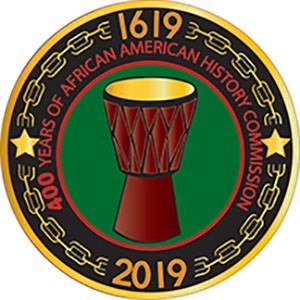Published: June 18, 2024

Juneteenth, also known as Freedom Day or Emancipation Day, is an important holiday celebrated annually on June 19th. It holds significant historical and cultural importance in the United States, marking the emancipation of enslaved African Americans.
Juneteenth commemorates June 19, 1865, when Union General Gordon Granger arrived in Galveston, Texas to announce the end of slavery. This proclamation, known as General Order No. 3 , declared that all slaves were now free almost two and a half years after the Emancipation Proclamation had been issued. Juneteenth symbolizes the belated arrival of freedom to the enslaved African American community and serves as a reminder of the struggles they endured.
On June 17, 2021, after decades of advocacy by activists and legislators, President Biden signed into law the Juneteenth National Independence Day Act, Public Law 117-17, making Juneteenth a Federal holiday. This landmark decision marked a crucial step in acknowledging and honoring the African American experience and the ongoing struggle for racial equality.
U.S. President Joe Biden signs the Juneteenth National Independence Day Act into law in the East Room of the White House on June 17, 2021. Source: National Museum of African American History and Culture
As Juneteenth gains widespread recognition, it provides an opportunity for education and reflection on the history of slavery and the ongoing struggle for racial equality. Schools, museums, and community organizations hold discussions, workshops, and exhibits to promote understanding and dialogue about the legacy of slavery and its impact on society.
Search GovInfo for
Presidential Statements and
Remarks in the Congressional Record related to Juneteenth.
Have you heard of the 400 Years of African American History Commission?
 On August 20, 1619, twenty enslaved Africans were brought to Point Comfort in the English colony of Virginia.
The 400 Years of African American History Commission Act (131 Stat. 2248)
was signed into law on January 8, 2018, to coordinate the 400th anniversary of the arrival of those first enslaved Africans. The Commission’s mission is to develop and facilitate activities throughout the United States to commemorate this anniversary by recognizing and highlighting the resilience and contributions of African Americans from that moment forward, while simultaneously acknowledging the painful impact of slavery, racial discrimination, and racism on our Nation.
Learn more about this Commission, administered by the National Park Service on their website.
On August 20, 1619, twenty enslaved Africans were brought to Point Comfort in the English colony of Virginia.
The 400 Years of African American History Commission Act (131 Stat. 2248)
was signed into law on January 8, 2018, to coordinate the 400th anniversary of the arrival of those first enslaved Africans. The Commission’s mission is to develop and facilitate activities throughout the United States to commemorate this anniversary by recognizing and highlighting the resilience and contributions of African Americans from that moment forward, while simultaneously acknowledging the painful impact of slavery, racial discrimination, and racism on our Nation.
Learn more about this Commission, administered by the National Park Service on their website.
The Commission's logo symbolizes 400 years of African-American history: the drum stands for global communications and healing; segmented chains represent breaking the cycle of slavery and the perpetual struggle for equality; two stars depict balance between inspiration and aspiration. Source: National Park Service
Additional Resources
- Watch the 2021 signing ceremony for Juneteenth National Independence Day Act, Public Law 117-17 with remarks from President Biden and Vice President Harris.
- See the White House June 10, 2024 "FACT SHEET: Biden-Harris Administration Announces New Actions to Protect and Preserve Our Nation’s African American History Ahead of Juneteenth National Independence Day."
- Read "Remarks by President Biden Hosting a Juneteenth Concert" held June 10, 2024 on the White House lawn.
- Explore the Smithsonian’s Juneteenth website to learn more about the history of Juneteenth, share your Juneteenth story, and find activities for children and youth.
- Find additional resources related to African American History on the National Archives' website.
- The National Park Service invites all visitors to commemorate Juneteenth National Independence Day by visiting any National Park Service site that charges an entrance fee for free on June 19, 2024.
